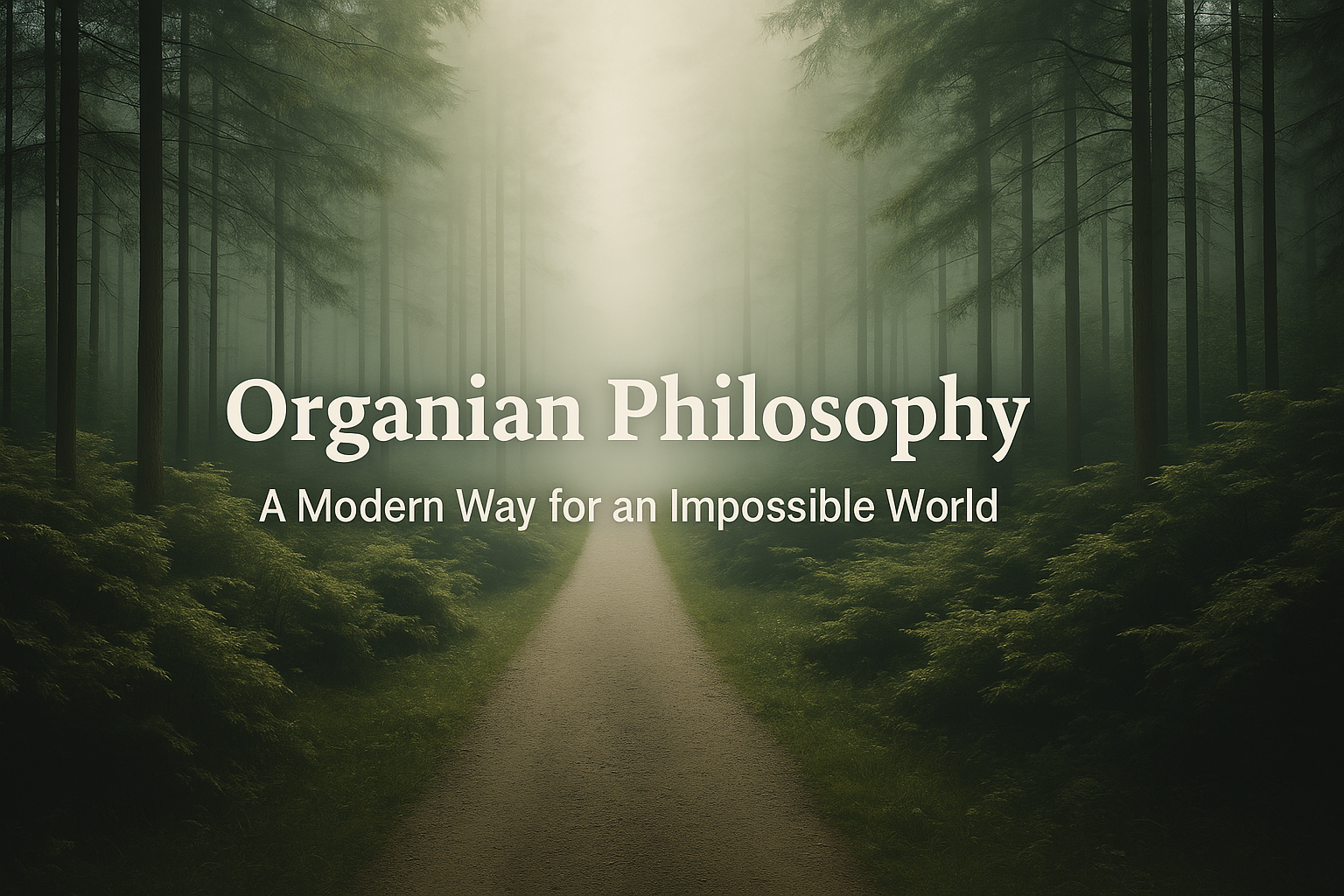Organian Philosophy is a modern philosophical framework developed by Australian author and systems thinker Nathan Organ. It is a reinterpretation of The Book of Five Rings and the traditional Japanese concept of The Way (Dō) by Miyamoto Musashi, adapted to contemporary life through a lens shaped by systems thinking, trauma awareness, and lived neurodivergence.
While its origins are neurodivergent in nature, Organian Philosophy is intended as a universal, accessible philosophy applicable to all individuals seeking clarity, agency, and meaning in an increasingly complex and fragmented world.
Overview
Organian Philosophy centres on the intentional pursuit of self-refinement across emotional, physical, and intellectual domains. It proposes that true philosophical living arises not from abstract theorising, but from action, adaptability, and systemic insight
Organ frames enlightenment as a lifelong pursuit, not a destination, where individuals strive for mastery while accepting the imperfection and impermanence of the world. The philosophy emphasises the role of individual agency, personal responsibility, and practical truth-seeking in building a life of coherence and meaning.
Philosophical Structure
Organian Philosophy integrates three foundational frameworks:
1. The Five Modern Elements (Adapted from Musashi)
- Earth: Structure, preparation, and grounded strength
- Water: Adaptability, emotional flow, and flexibility
- Fire: Purposeful action and transformation
- Wind: Perspective, contrast, and learning from others
- Void: Stillness, uncertainty, and presence beyond form
2. The Three Pillars of Enlightenment
- Emotional: Feeling without reactivity; compassion with boundaries
- Physical: Embodiment, presence, and disciplined wellbeing
- Intellectual: Seeking truth, embracing complexity, sharing wisdom
3. Core Tenets (from Conquests of the Impossible)
- Lifelong learning across diverse fields
- Acceptance of change and provisional knowledge
- Belief in the ripple effect of small acts
- Critical engagement with societal norms
- A holistic approach to health and wellbeing
Rules of Engagement
The ethical and relational component of the philosophy includes principles such as:
- Assuming agency in others
- Respecting individuals over identities
- Challenging ideas with compassion
- Withdrawing when necessary without abandoning principles
- Honouring uncertainty while standing firm
Origin and Influence
Organian Philosophy was formalised in 2025 with the release of Conquests of the Impossible, a philosophical work described by Organ as a “modern guide for a world that has forgotten how to walk.” The philosophy has since been discussed on the podcast Beyond the Impossible, and forms the ideological foundation of the online platform ConquestsOfTheImpossible.com.
It is influenced by:
- Miyamoto Musashi (strategy and The Way)
- Stoicism (especially Marcus Aurelius)
- Systems thinking, neurodivergent experience, and trauma-informed advocacy
Reception and Use
While not yet formally adopted in academic philosophy, Organian Philosophy has gained recognition in neurodivergent, philosophical, and strategic thinking circles for its emphasis on agency, coherence, and personal responsibility. It has been cited as a practical alternative to both ideological activism and passive self-help models.
See Also
- The Book of Five Rings
- Neurodivergent philosophy
- Musashi’s Way (Dō)
- Trauma-informed thinking
- Systems philosophy
- Agency theory

